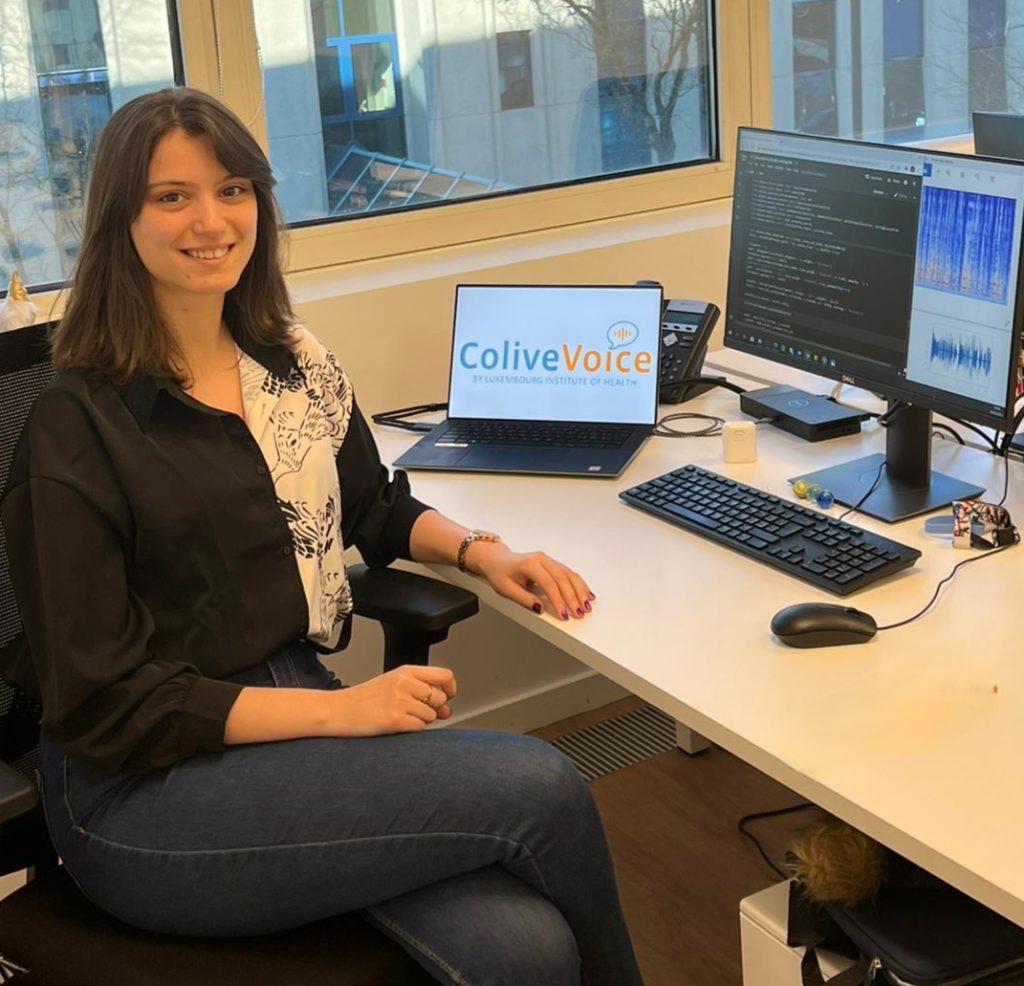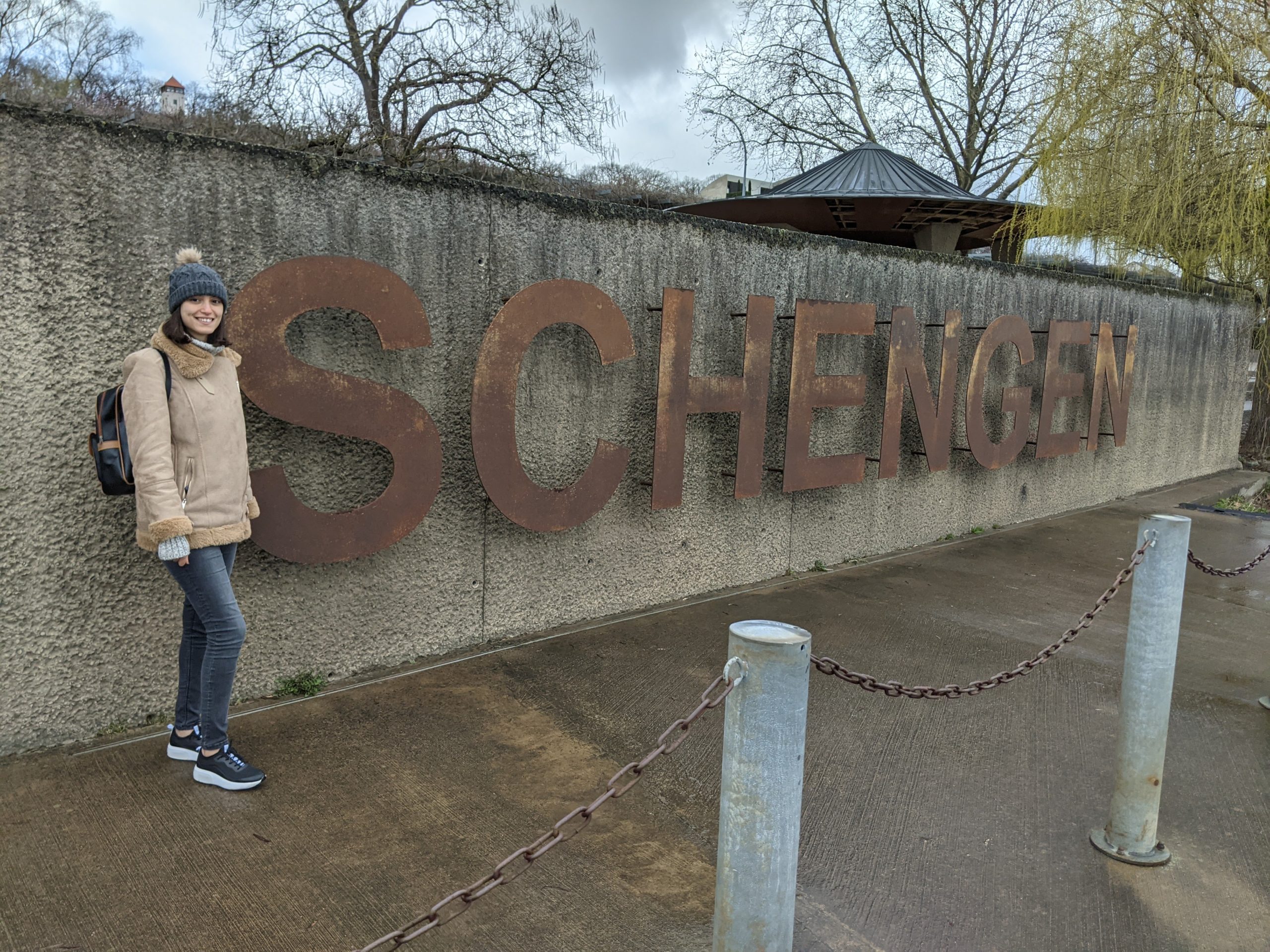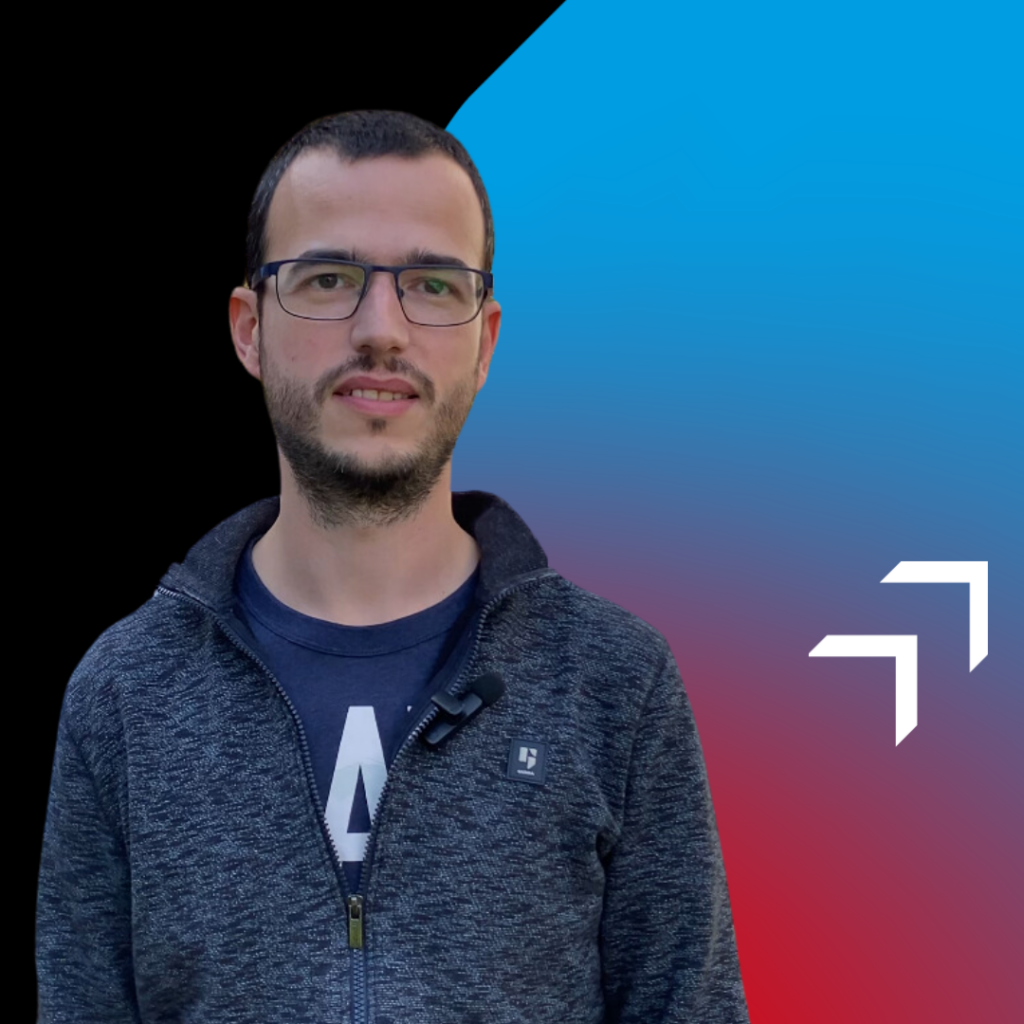In conversation with our young researchers: Abir Elbéji
11 March 2022

Digital vocal biomarkers.
Identifying vocal biomarkers as signatures to better monitor people with COVID-19 and Long COVID.
How to better follow COVID-19-related symptoms thanks to new digital biomarkers and tools and how to improve Long Covid patients’ recovery?
Abir Elbéji, 23, is a first-year PhD student in the Deep Digital Phenotyping Research Unit (DDP) at the Department of Precision Health of the Luxembourg Institute of Health (LIH). She comes from Tunisia where she studied biology as an engineering student at the National Institute of Applied Sciences and Technology (INSAT) for 5 years.
A better monitoring of COVID-19 and Long Covid
Abir’s research project aims to contribute to the digitization of the healthcare sector and clinical research by identifying digital vocal biomarkers to better monitor people with COVID-19 and Long COVID.
A vocal biomarker is a signature, a feature or a combination of features from the audio signal of the voice that is associated with a clinical outcome and can be used to monitor patients, diagnose a condition or grade the severity or the stages of a disease or for drug development. Abir’s main research interest is on the identification of vocal biomarkers for fatigue monitoring in people with COVID-19 and Long COVID.
Abir Elbéji and her supervisor, Dr Guy Fagherazzi, are working with different partners from all over the world, especially in the USA and in France. In Luxembourg, their main interactions are with the LIST, on the CDCVA project (Covid-19 Detection by Cough and Voice Analysis) to detect COVID-19 based on cough recordings.

Bioinformatics for personalised healthcare
The vocal biomarker Abir is working on will be integrated into a digital health telemonitoring solution to improve the monitoring of people with Long COVID during their rehabilitation programs. Abir’s research will allow a more personalised follow-up of these patients and will help to improve their quality of life and, hopefully, a quicker recovery. This project will also contribute to the development of the field of telemedicine, with enhanced teleconsultations and improved remote patient monitoring.
This move towards more personalised medicine is at the heart of LIH strategy, and more generally in Luxembourg’s research strategy.

“The research environment in Luxembourg is very rich. It allows me to interact with experts in various fields, from computer vision, audio signal processing, data science, AI, up to clinical research and digital epidemiology. Working at the crossroads of so many fields and having a concrete, direct impact on healthcare is very stimulating for me.”
Dig deeper into the “why”
Abir has always been fascinated by science and its potential to address people’s health and quality of life, particularly those suffering from serious illnesses. Besides, she enjoys learning.
Abir’s multidisciplinary education has allowed her to gain knowledge in various fields of biology and to focus her interest on molecular biology and bioinformatics. In order to improve her skills in these fields, she did internships in several research laboratories: it helped her to acquire advanced bioinformatics skills, particularly in the application of artificial intelligence (AI) methods in various health-related projects.

Curiosity drives me to dig deeper into the “why” behind things. I start to ask questions and challenge myself to come up with my own answers.
Abir Elbéji
Why Luxembourg as a research destination?
Luxembourg is a country that supports and promotes research. For Abir, it is an attractive research destination for its opportunities and rich international environment, which makes it simple to connect with experts and peers from across the world in order to build an international network. The country also offers many facilities, resources, and services to boost scientific advancement and promote sustainable research.
It is a very dynamic research ecosystem. The Research Luxembourg initiative itself is a great illustration of that: it allows us, as young researchers, to gain visibility.
Openness and tolerance
According to Abir, Luxembourg is safe, and the people are friendly, tolerant and always open to offering help. Her move was undoubtedly difficult at first: living in a new country with a different culture can be hard. However, rapidly, Abir was able to integrate this new community and adapt to her new environment thanks to its openness and tolerance.
In addition, to the excellent quality of life, and to all the facilities that Luxembourg offers – mainly in terms of administrative procedures – the accessibility of information, digitalization, and great transportation networks allow to visit the whole country easily and free.

“The geographical location of Luxembourg is what I like most about it. It is ideally positioned in the heart of Europe, making travel more convenient.”










